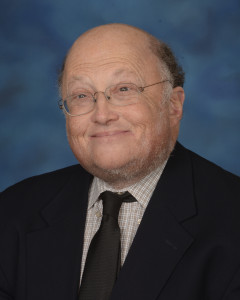Editor’s Note: Gambling addiction, by virtue of being the first non-substance disorder to be included in the addiction chapter of DSM-5, is beginning to achieve credibility in a treatment community that has heretofore been skeptical. A basic tenet in the addiction field is that the first step in dealing with a problem is to acknowledge that the problem exists. In this spirit, our guest writer this month, Jeff Beck, suggests that a good first step to expedite this issue coming out of the shadows is to “have the conversation.” Gambling disorders, as much as any substance use disorder, can remain hidden until severe consequences have developed. Earlier identification of substance use disorders can often improve treatment outcomes. I hope that his article will enable clinicians to begin to apply this principle to those suffering with gambling disorders.
By Jeffrey Beck
 The National Council on Problem Gambling has designated March as Problem Gambling Awareness Month. This is a grassroots effort designed to call attention to the fact that gambling disorders constitute a public health issue. Six to eight million Americans meet criteria for gambling disorders. It is estimated that 8-10 people are affected by one individual’s gambling problem, as it impacts relationships, families, business and communities.
The National Council on Problem Gambling has designated March as Problem Gambling Awareness Month. This is a grassroots effort designed to call attention to the fact that gambling disorders constitute a public health issue. Six to eight million Americans meet criteria for gambling disorders. It is estimated that 8-10 people are affected by one individual’s gambling problem, as it impacts relationships, families, business and communities.
The theme for March is “Have the Conversation.” This can be utilized in many different settings. Addiction and mental health counselors can properly screen for gambling disorders, which will lead them to “have the conversation” with their clients; otherwise it may go undetected. Family members can “have the conversation” with those who are showing signs of a gambling disorder. Individuals who find that gambling is causing negative consequences in their lives and affecting their finances, legal status, employment, family, emotionality, cognitive skills or spirituality can “have the conversation” with gambling helplines, which can direct them to available resources that can help. Casino industry professionals can “have the conversation” with each other and with The Maryland Center of Excellence on Problem Gambling to better understand how to minimize harm while promoting the gambling industry.
Research shows that less than 10 percent of individuals with gambling disorder ever seek professional or self-help groups. There is still a stigma attached to gambling, a reluctance to discuss it and a lack of awareness of the availability of treatment. March is designed to raise awareness about the many far-reaching effects of gambling disorders, such as increased risk of suicide, physical and emotional health issues, increased domestic violence rates, decreased work productivity and increased risk of bankruptcy.
We cannot identify gambling issues through blood, urine screens or hair follicles. It can’t be smelled on the breath or noticed in slurred speech or dilated pupils. This is why it is often referred to as an invisible addiction. However, there are financial, behavioral, relational and emotional manifestations that can be observed and that can suggest a problem. Having the conversation is a way to voice concerns in a manner that may encourage those negatively affected by gambling to talk openly and seek help.
Gambling has been normalized in our society; 80-90 percent of Americans have gambled in their lifetime. Most are social gamblers, who are able to exercise control over the gambling, seeing it as a form of entertainment rather than a money making venture. Our hope is to raise awareness that some people do develop gambling disorders and help is available. Having the conversation in March is a great way to reach out to those who may be at risk or are suffering and encourage the utilization of resources that can help. Any individual in Maryland concerned about their own gambling or the gambling of others can call, chat or text to 1-800-GAMBLER to find help.
Jeffrey Beck is clinical director for the Maryland Center of Excellence on Problem Gambling.
